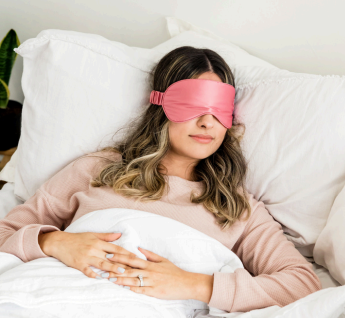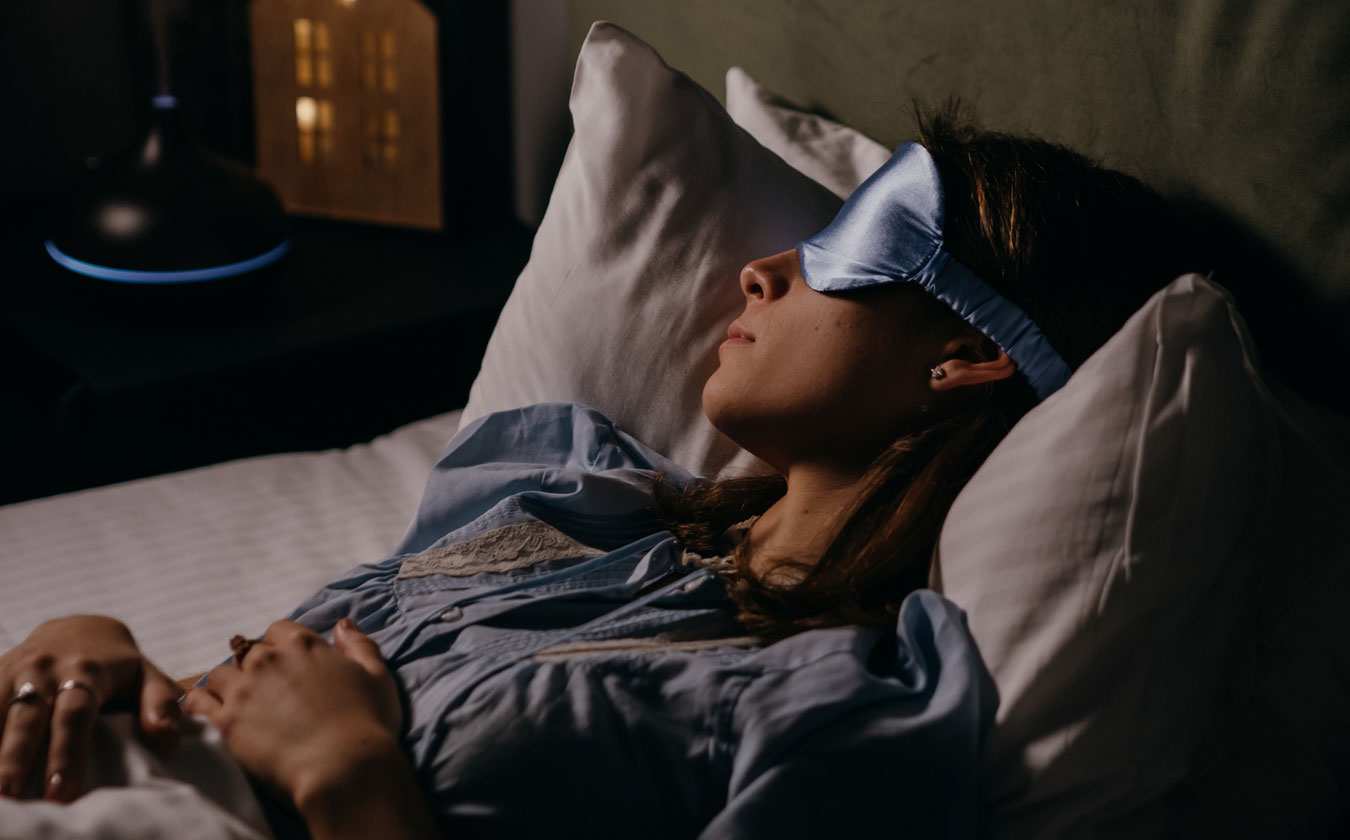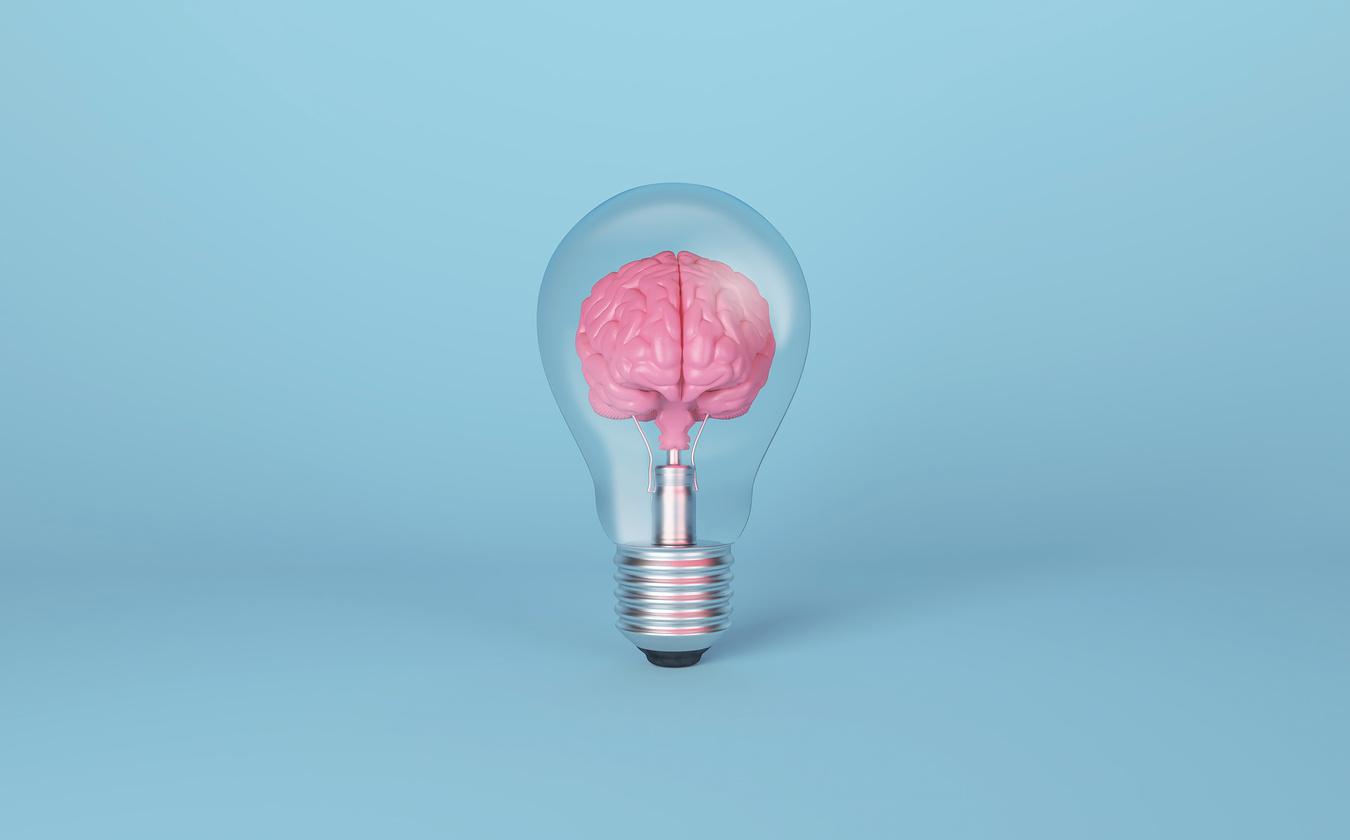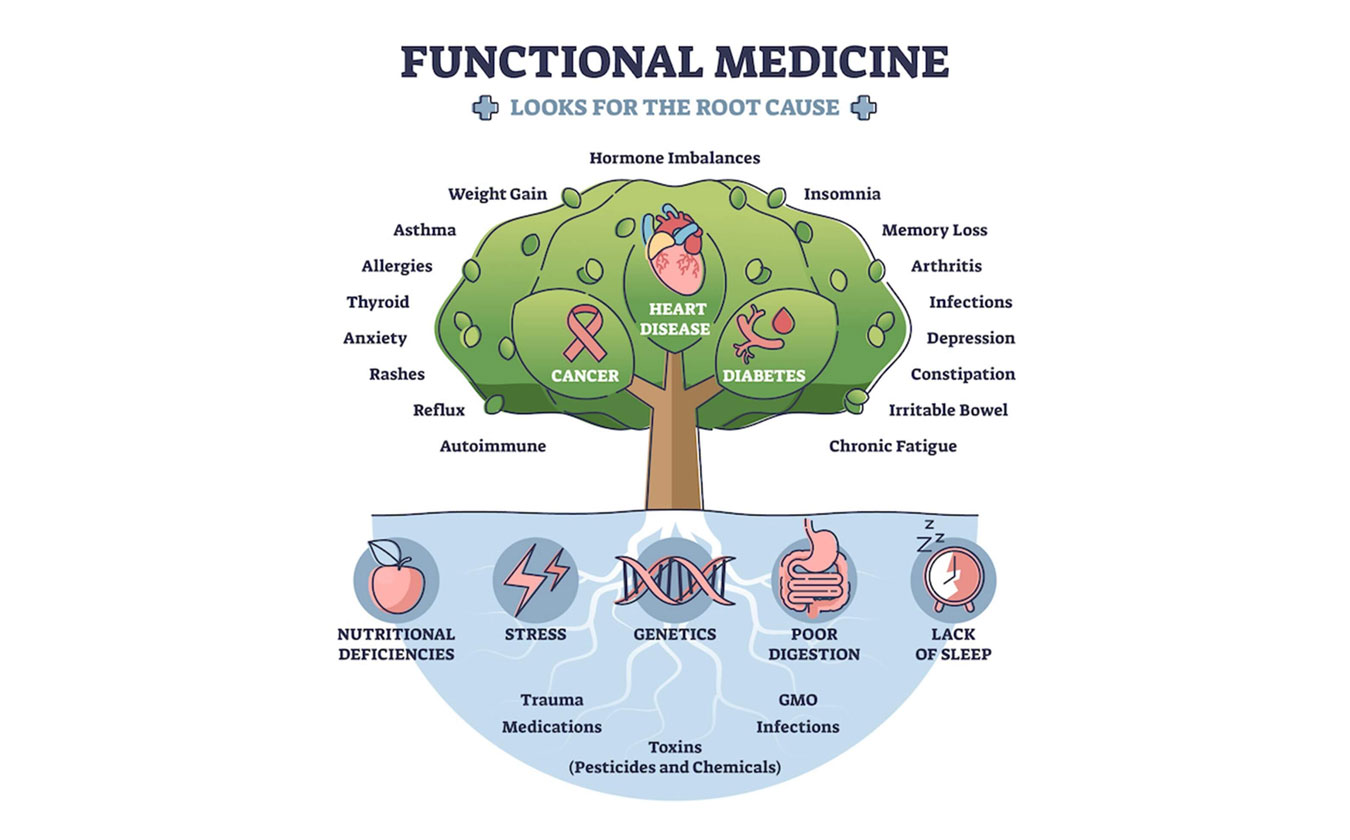There is a night and day difference in how we feel when we’re rested vs when we aren’t. Lack of sleep isn’t just about feeling tired; there are many potential downstream negative health effects. According to Johns Hopkins Medicine: “Chronic poor sleep may increase the likelihood of developing dementia, heart disease, type 2 diabetes, obesity and even cancers of the breast, colon, ovaries and prostate.” This means making sleep a priority is one of the most important things you can do for every aspect of your health. Adequate sleep is also important for immune function, brain health, healing, weight management, mood and much more. When we’re tired, our healthy habits tend to fall by the wayside because we don’t have the energy to exercise and it’s easier to make unhealthy food choices. According to the Sleep Foundation, more than ⅓ of the population sleeps less than 7 hours per night, on average. If you find yourself among the sleep deprived, or you want to improve the quality of sleep you’re getting, there are practical routines and actions you can adopt that can help. It may take some experimenting, so be open to trying something new to see what works for you.
1. HAVE A SET SLEEP-WAKE SCHEDULE
Set a regular sleep schedule where you go to bed and wake up at the same time every day. This can help prioritize getting in the number of hours you need (7-9 hours for most adults) and it helps your body get into a routine. Hormones such as melatonin, cortisol, and growth hormone play critical roles in regulating sleep, stress, and overall health. Getting into a consistent schedule helps maintain the balance and consistency of these hormones, which can improve sleep and overall well-being.
2. GET OUTSIDE IN THE MORNING TO GET EXPOSURE TO NATURAL LIGHT
Our circadian rhythm regulates our sleep cycle, so being exposed to sunlight in the morning can help us at night. According to Psychology Today “Most people can reset their body clock by keeping a regular schedule and exposing themselves to natural light in the morning.“ Make it a goal to get outside as soon as you can each morning after waking for 10-15 minutes. This can be going for a short walk, eating breakfast outside or anything else you enjoy doing.

3. LIMIT CAFFEINE IN THE AFTERNOON
It can be tempting to have that extra dose of caffeine in the late afternoon, but it could also be messing with your sleep. The stimulating effects of caffeine can interfere with the natural winding down process that’s needed for a good night’s rest. The effects of caffeine vary from person to person but can last from 3-5 hours (depending on the amount consumed). Limit or omit your intake of caffeine later in the day and see if it helps you fall asleep faster and stay asleep longer.

4. MANAGE STRESS AS BEST YOU CAN
High stress levels can wreck your sleep. Incorporate relaxation techniques such as deep breathing, meditation, or gentle stretching to calm your body and mind before bedtime. There are some great apps for this such as Calm and Head Space. Taking a bath or shower can also be helpful for relaxing and winding down. Consider keeping a journal to clear your mind and make note of any to-do’s for the next day, so you don’t have to worry about forgetting about it.

5. TURN OFF ELECTRONIC DEVICES AN HOUR BEFORE BED
The blue light emitted by electronic devices can interfere with the production of the sleep hormone melatonin. If you must use electronic devices, consider using blue light filters or “night mode” settings.


6. STOP EATING 2+ HOURS BEFORE BED TIME
Have you ever noticed that if you eat too close to the time you go to bed, you don’t sleep well? According to Dr. Daniel Amen “Food is fuel, so don’t eat for at least two hours before going to bed. Late night snacking is unhealthy and prepares your body to stay up rather than shut down for the night.” Additionally, insulin sensitivity, which plays a role in regulating blood sugar levels, tends to decrease later in the day. This combination can contribute to weight gain over time, impacting overall health.

7. STOP CONSUMING LIQUIDS AT LEAST 2 HOURS BEFORE BEDTIME
Waking up at night to use the bathroom can really disrupt your sleep. This could be happening due to drinking too close to bedtime. Make it a goal to end liquid consumption at least 2 hours before you plan to go to bed.

8. SLEEP ENVIRONMENT
Set up your bedroom so it’s totally dark or as dark as possible. Do you have any light coming from clocks, night lights, outside, etc? According to Harvard Health “Exposure to light suppresses the secretion of melatonin, a hormone that influences circadian rhythms.
Even dim light can interfere with a person’s circadian rhythm and melatonin secretion. A mere eight lux—a level of brightness exceeded by most table lamps and about twice that of a night light—has an effect, notes Stephen Lockley, a Harvard sleep researcher.” Use black out curtains or an eye mask if necessary to block out lights coming
into your room.

9. LIMIT ALCOHOL CONSUMPTION
It’s common to think that having a drink before bed could be a good way to relax and help you feel sleepy, but it can actually backfire and here’s why: ”While it’s true that alcohol is a sedative, both having it in your system as well as the process of it wearing off can cause a variety of different problems,” says neurologist and sleep expert Jessica Vensel Rundo, MD. “You’re likely to experience fragmented sleep, insomnia or possibly more serious sleep issues.”

10. PHYSICAL ACTIVITY
Regular physical activity is linked to improved sleep quality. Make it a goal to get at least 30 minutes of moderate exercise most days of the week. Activity trackers such as a Fitbit or app on your smart watch are helpful tools for tracking daily activity. These devices (in addition to the Oura ring) can also be useful for tracking your sleep. Try to finish your workout a few hours before bedtime, since exercising too close to sleep may have the opposite effect.










